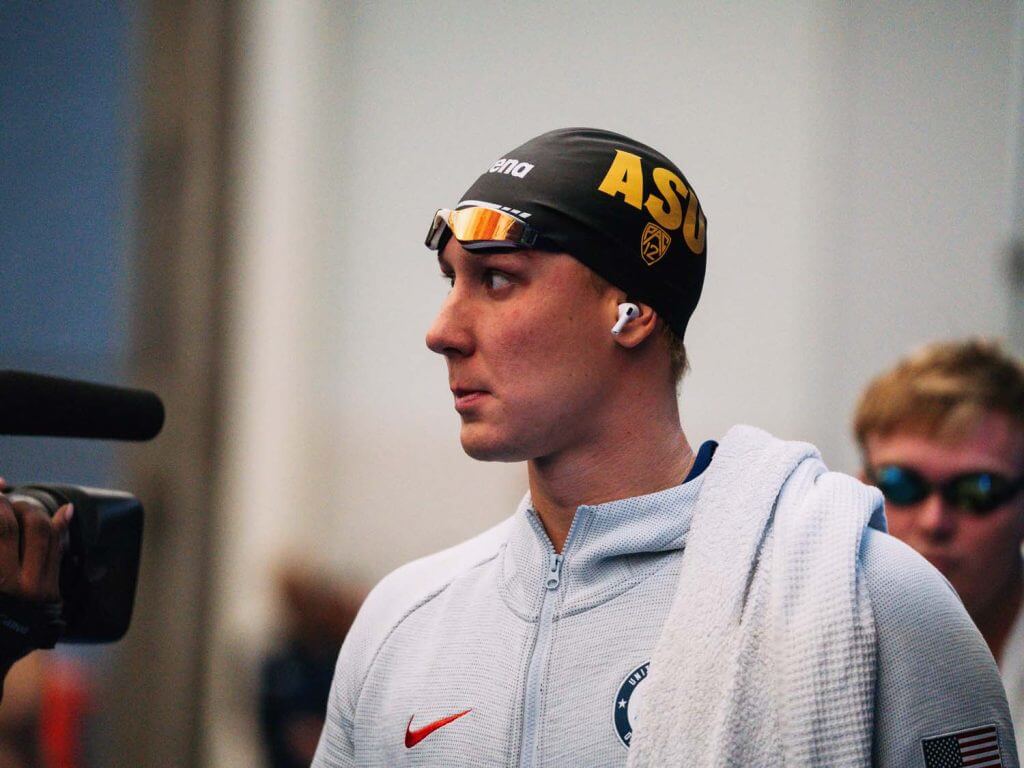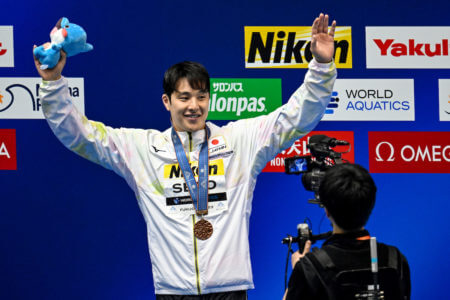Chase Kalisz, Daiya Seto Seeking Historic Olympic Medals For 30-Year-Old Swimmers

Chase Kalisz, Daiya Seto Seeking Historic Olympic Medals For 30-Year-Old Swimmers
Prior to the men’s 400 IM final at the Paris Olympics, expect all talk to surround Leon Marchand, the home country’s native star seeking his first Olympic title after knocking off the last Michael Phelps world record in the 400 IM in 2023. Marchand will be the heavy favorite for gold, with a strong chance to eclipse his own global standard of 4:02.50. But in the battle for medals behind the Frenchman, two veterans will be aiming for a podium finish unprecedented for swimmers their age.
No male swimmer age 30 or older has ever won an Olympic medal in a race 400 meters or above. Plenty of veteran swimmers have been a force in sprint events, most notably with Anthony Ervin winning gold in the 50 freestyle at the 2016 Games, but in the endurance-centric events, it becomes much more difficult for older swimmers to maintain the training volume and intensity required to win a medal on the biggest stage.
A handful of distance swimmers have scored medals in the latter years of their career but never in their 30s: Vladimir Salnikov won 1500 free gold at the 1998 Games at age 28, and two decades later, Grant Hackett was also 28 when he came up just short in his pursuit of a third consecutive gold in the 1500. In 2012, Ous Mellouli won 1500 free bronze and 10K gold at age 28. Meanwhile, Australian distance star Kieran Perkins was 27 when he took silver in the mile at the Sydney Games. In the 400 IM, the oldest man to win a medal was Ryan Lochte, who took gold days before his 28th birthday at the 2012 Olympics.

Daiya Seto — Photo Courtesy: Andrea Staccioli / Deepbluemedia / Insidefoto
Enter Chase Kalisz and Daiya Seto, a pair of rivals who have battled it out in 400 IM finals for a decade. At least one of the two has been on the podium at every major meet since the 2013 World Championships, and both were top-three finishers at the 2016 Olympics plus three editions of the World Championships and the 2018 Pan Pacific Championships.
Recently, Marchand has emerged as the world’s dominant 400 IMer while American Carson Foster is the clear No. 2, but Kalisz swam his fastest time in years to take bronze at the 2022 World Championships. One year after that, Seto overtook Kalisz over the final 100 meters to earn bronze. Kalisz is the fourth-fastest performer ever in the event at 4:05.90, while Seto ranks sixth at 4:06.09.
But before Paris, Kalisz will turn 30 on March 7, and Seto will reach his third decade on May 24. And based on their recent form, it is conceivable that one or the two could represent all veteran swimmers well by reaching the podium in arguably the sport’s most grueling event in Paris. Other veteran swimmers will have chances at medals in longer events, but none will be 30 yet (Gregorio Paltrinieri will be 29 while fellow distance ace Mykhailo Romanchuk will be days shy of his 28th birthday).
Kalisz is coming off a strong 400 IM performance at the U.S. Open earlier this month, where he sailed ahead of Foster on breaststroke before finishing in 4:10.42, just off his fourth-place time (4:10.23) from Worlds. Seto, meanwhile, will finish 2023 ranked third in the world with his season-best mark of 4:07.92, just ahead of Kalisz at 4:08.22. No other man has cracked 4:09 this year, and only four others are sub-4:10.
Both men have already put together remarkable careers. Kalisz peaked at the 2017 World Championships when he swept gold medals in the 200 and 400 IM, and four years later, he earned his lone Olympic gold medal in the 400 IM. Seto, meanwhile, has captured four long course world titles (three in the 400 IM plus one in the 200 IM) as well as a whopping nine golds at the Short Course World Championships. Perhaps his most remarkable feat has been winning six consecutive short course world titles in the 400 IM, a streak stretching from age 18 to age 28.
One last Olympic medal in the 400 IM, in the process becoming the only 30-something man ever to win an Olympic medal in a race that long, would be quite a finale for either man.

- EVENT PAGE
- SCHEDULE
- VENUE
- STREAMING INFO
- DAY 1 PRELIMS RESULTS
- DAY 1 FINALS RESULTS
- DAY 2 PRELIMS RESULTS
- DAY 2 FINALS RESULTS
- DAY 3 PRELIMS RESULTS
- DAY 3 FINALS RESULTS
- DAY 4 PRELIMS RESULTS
- DAY 4 FINALS RESULTS
- DAY 5 PRELIMS RESULTS
- DAY 5 FINALS RESULTS
- DAY 6 PRELIMS RESULTS
- DAY 6 FINALS RESULTS
- DAY 7 PRELIMS RESULTS
- DAY 7 FINALS RESULTS
- DAY 8 PRELIMS RESULTS
- DAY 8 FINALS RESULTS
- DAY 9 FINALS RESULTS



